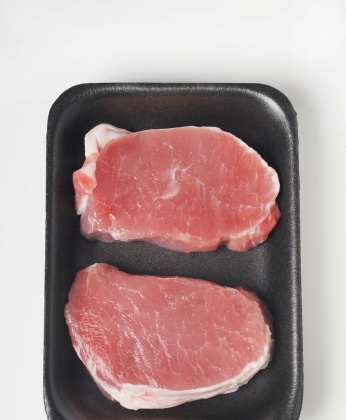Potato Diet Review: Does It Work for Weight Loss?
The potato is one of the world’s most commonly eaten vegetables. It’s an incredibly versatile food packed with nutrients like fiber, vitamins, and minerals. Yet, it has gained a reputation for packing on the pounds. This has left many people wondering whether they should avoid potatoes if they want to lose weight.
The potato diet is a low-carb, low-fat diet that recommends eating potatoes as the main source of carbohydrates and limiting other high-carb foods.
How It Works
The potato diet is claimed to work by increasing satiety and reducing overall calorie intake because potatoes, especially when eaten with the skin, are quite satiating. Potatoes are rich in fiber, which moves slowly through your digestive tract, and is slowly digested, promoting a feeling of fullness while reducing appetite.
Recommended Foods
The diet focuses on eating whole, unprocessed foods, emphasizing nutrient-dense potato consumption (with the skin on). However, it still involves some food restrictions:
- The potato is recommended as the primary carbohydrate source, while you should limit other carb sources like pasta, rice, and sugary snacks.
- Lean proteins like fish and chicken are allowed but red meats and processed meats should be avoided.
- Healthy fats like olive oil, coconut oil, and nuts are supported, but saturated fats and trans fats should be reduced or eliminated.
- Water and herbal teas are suggested over sweetened drinks.
Exercise Recommendations
While the diet provides nutritional guidelines, it doesn't offer specific exercise guidelines. However, it does recommend regular physical activity, which is crucial for an effective and healthy weight loss approach.
Potential Benefits:
- Nutritional Benefits: Potatoes offer important nutrients like fiber, vitamin A, vitamin C, and potassium. They can add nutritional variety to the diet.
- Satiety and Potential Weight Loss: Eating whole foods can increase satiety and support moderate calorie intake, including potatoes with their relatively high fiber content. This may aid weight loss efforts.
- Affordability: Potatoes are generally inexpensive, making the diet accessible for many people.
- Ease of Following: The diet offers clear guidelines and suggests foods that are commonly found in most households, making it relatively simple to follow.
Potential Concerns
- Limited Food Options: The diet heavily relies on potatoes, restricting the variety of foods consumed during the diet period. This can lead to potential nutrient deficiencies unless attention is paid to balanced food choices.
- Lack of Specific Instructions: While the diet provides general nutrition guidelines, it lacks specific meal plans, portion control recommendations, or detailed exercise guidance. Personalized approaches may be necessary for an effective weight loss journey.
- Potential Unbalanced Nutrition: The diet is low in certain essential nutrients found in whole grains and legumes. A lack of diversity can lead to nutrient imbalances if strict adherence to the potato concept isn’t balanced.
- Monotony: Consuming potatoes as the primary carbohydrate source for an extended period may become repetitive and monotonous.
Conclusion:
The potato diet promotes nutrient-dense food choices and can potentially aid weight loss through satiety. However, it lacks specific exercise guidance and detailed diet plans, which may necessitate a more personalized approach to weight management. Consult a registered dietitian before making any significant changes to your diet.
-
Top 6 Herbs And Their Health Benefits
These top six herbs will help you in the detoxification of the bod
-
How to Think Yourself Thin
You can learn a lot by watching a
-
Diabetic Diet Food Menu: Leave the Worry Behind
Diabetic Diet Food Menu: Leave the Worry Behind
-
Weight Loss Diet Review: Finding The Top Weight Loss Diet Product
Year after year people spend millions of dollars in search of that o
-
Healthy Food Delivery Beats Packing on the Pounds
Healthy Food Delivery Beats Packing on the Pounds
-
9 Exercises to Burn Abdominal Fat In 30 Days
The following exercises will help you burn abdominal fat an
- Weight Loss Diet
- Healthy Vegetarian Diet -Getting the most from fruits and vegetables in the diet
- How To Lose 12 Pounds In A Month
- Low-Cal Comfort Food Youll Love
- Top 10 Overrated Health Foods of 2009
- This Ginger Drink Melts The Most Persistent Fat
- Her Diet Became a Hit: She Lost 55 Pounds in 100 days
- Week 11: A whole new me
- Types of Complementary Proteins
- How To Cleanse Pounds Of Toxins Accumulated in Your Colon With Only Two Ingredients
- Eat-fasting 2.0



